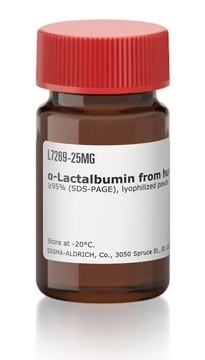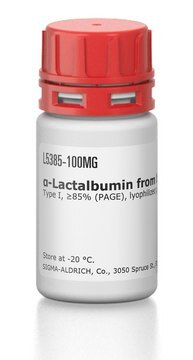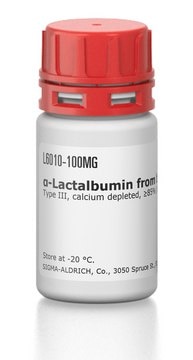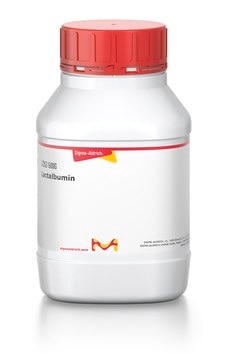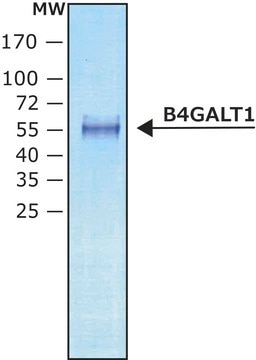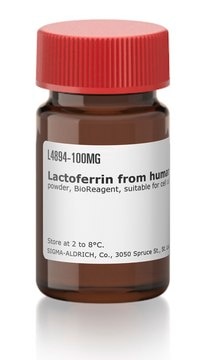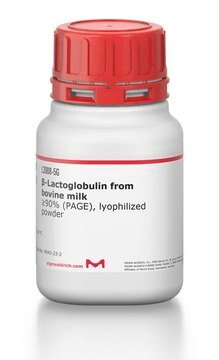SRP6305
Lactalbumin from human milk
≥95% (SDS-PAGE)
Synonym(s):
LYZL7
Sign Into View Organizational & Contract Pricing
All Photos(1)
About This Item
UNSPSC Code:
12352202
NACRES:
NA.32
Recommended Products
biological source
human milk
assay
≥95% (SDS-PAGE)
form
lyophilized
mol wt
14 kDa
packaging
pkg of 5 mg
UniProt accession no.
shipped in
wet ice
storage temp.
2-8°C
Gene Information
human ... LYZL7(3906)
General description
α-Lactalbumin is an important whey protein in cow′s milk, and is also present in the milk of many other mammalian species. In primates, α-lactalbumin expression is upregulated in response to the hormone prolactin and increases the production of lactose. α-Lactalbumin forms the regulatory subunit of the lactose synthase (LS) heterodimer and β-1,4-galactosyltransferase (β4Gal-T1) forms the catalytic component. Together, these proteins enable LS to produce lactose by transferring galactose moieties to glucose. As a monomer, α-lactalbumin strongly binds calcium and zinc ions and may possess bactericidal or antitumor activity. When formed into a complex with Gal-T1, a galactosyltransferase, α-lactalbumin, enhances the enzyme′s affinity for glucose by about 1000 times, and inhibits the ability to polymerize multiple galactose units. This gives rise to a pathway for forming lactose by converting Gal-TI to Lactose synthase.
Physical form
Lyophilized from de-ionized water.
Reconstitution
Use deionized water
wgk_germany
WGK 3
flash_point_f
Not applicable
flash_point_c
Not applicable
Certificates of Analysis (COA)
Search for Certificates of Analysis (COA) by entering the products Lot/Batch Number. Lot and Batch Numbers can be found on a product’s label following the words ‘Lot’ or ‘Batch’.
Already Own This Product?
Find documentation for the products that you have recently purchased in the Document Library.
Customers Also Viewed
Our team of scientists has experience in all areas of research including Life Science, Material Science, Chemical Synthesis, Chromatography, Analytical and many others.
Contact Technical Service